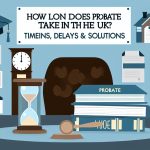Table of Contents

Key Takeaways
- Choosing a professional trust advisor in the UK can significantly impact the success of your trust setup.
- Trust professionals include solicitors, financial advisers, and accountants with specific expertise in trusts.
- Look for professionals with regulatory compliance, strong credentials, and a proven track record.
- Understand the fee structure and ensure it aligns with your budget and expectations.
- Ask detailed questions about their experience, process, and communication style before making a decision.
Why Choosing the Right Professional Matters
When setting up a trust, especially in the UK, the choice of professional can make or break your plan. Trusts are complex legal arrangements that require meticulous attention to detail. Therefore, selecting the right professional is crucial. They not only help in setting up the trust but also ensure that it complies with legal requirements, functions smoothly, and achieves your desired goals.
The Role of Trust Professionals
Trust professionals play a pivotal role in the establishment and management of trusts. They guide you through the intricate legal landscape, ensuring every aspect is handled correctly. Their expertise can prevent costly mistakes and provide peace of mind, knowing that your assets are protected and managed as you intended.
These professionals include solicitors, financial advisers, and accountants who specialize in trust management. Each brings a unique set of skills to the table, offering different perspectives and solutions tailored to your specific needs.
Impact on Your Trust’s Success
The success of your trust largely depends on the professional you choose. A competent trust professional will not only ensure compliance with legal standards but will also optimize the trust’s structure for tax efficiency and asset protection. On the other hand, an inexperienced or ill-suited professional might overlook critical details, leading to potential legal challenges or financial losses. For more guidance, you can explore this complete guide on registering a trust in the UK.
Understanding Types of Trust Professionals
In the UK, several types of professionals can assist you with trust setup and management. It’s essential to understand their roles to make an informed decision.
Solicitors Specialising in Trusts
Solicitors are legal professionals who can draft the trust deed and ensure that it meets all legal requirements. They are well-versed in the nuances of trust law and can provide valuable advice on structuring the trust to meet your specific needs.
When selecting a solicitor, look for those who specialize in estate planning and trusts. They should have a thorough understanding of the latest legal developments and be able to offer strategic advice on minimizing potential risks.
Financial Advisers and Their Expertise
Financial advisers offer guidance on the financial aspects of a trust. They can help you choose the right investments and strategies to grow and protect the trust’s assets. Their role is crucial in ensuring that the trust aligns with your long-term financial goals.
Accountants with Trust Experience
Accountants play a vital role in managing the financial records of a trust. They ensure compliance with tax regulations and provide insights into the financial health of the trust. An accountant with experience in trusts can help optimize tax liabilities and offer strategies for efficient asset management.
Choosing the right accountant means looking for those who have a deep understanding of trust taxation and financial reporting requirements. Their expertise can save you time and money, ensuring the trust operates smoothly.
| Professional | Role | Key Responsibilities |
|---|---|---|
| Trustee | Manager of trust assets | – Manage trust assets according to trust deed – Act in best interests of beneficiaries – Make investment decisions – Ensure legal compliance |
| Solicitor | Legal advisor | – Draft trust documents – Provide legal guidance – Ensure trust complies with laws and regulations – Assist with property title transfers |
| Accountant | Financial advisor | – Manage trust finances – Provide tax planning advice – Ensure tax compliance – Prepare financial statements |
| Investment Advisor | Financial strategist | – Develop investment strategies – Manage asset allocation – Monitor market trends – Provide financial planning advice |
| Professional Trustee | Impartial trust manager | – Bring expertise to trust management – Provide objective decision-making – Ensure compliance with fiduciary duties – Offer continuity in trust administration |
| Tax Specialist | Tax planning expert | – Optimize tax efficiency for the trust – Stay updated on tax laws – Advise on tax implications of trust decisions – Assist with tax filings |
| Property Manager | Real estate expert | – Manage trust-owned properties – Handle tenant relations – Oversee property maintenance – Advise on property investments |
Key Criteria for Selecting a Professional
When selecting a trust professional, several criteria can help you make the best choice. These include regulatory compliance, experience, and fee structures. Understanding these aspects will enable you to evaluate potential professionals effectively.
Regulatory Compliance and Credentials
One of the most critical aspects to consider when choosing a trust professional is their compliance with regulatory standards. In the UK, professionals involved in trust management should be regulated by bodies such as the Solicitors Regulation Authority (SRA) or the Financial Conduct Authority (FCA). This ensures that they adhere to strict ethical and professional standards.
Credentials also matter significantly. Look for qualifications such as STEP (Society of Trust and Estate Practitioners) membership, which demonstrates a high level of expertise and commitment to the field. These credentials provide assurance that the professional has the necessary knowledge and skills to handle complex trust issues.
Experience and Track Record
Experience is a key indicator of a professional’s capability. You should seek professionals who have a proven track record in setting up and managing trusts similar to yours. Ask for case studies or examples of past work to gauge their experience.
Moreover, check how long they have been in practice and their history of dealing with trusts. A well-established professional with a solid reputation can offer insights and solutions that less experienced individuals might overlook.
Professional Indemnity Insurance
Professional indemnity insurance is essential for trust professionals. It provides protection in the event that they make a mistake or offer negligent advice that results in financial loss. Ensure that the professional you choose has adequate insurance coverage.
This insurance not only protects you but also indicates that the professional takes their responsibilities seriously. It reflects a commitment to accountability and provides peace of mind knowing that any errors will be rectified.
Fee Structure and Transparency
Understanding the fee structure is crucial before engaging a trust professional. Fees can vary widely, and it’s important to know exactly what you’re paying for. Some professionals charge a flat fee, while others may charge by the hour or as a percentage of the trust’s assets.
Transparency in fees is a hallmark of a trustworthy professional. Make sure they provide a detailed breakdown of costs and explain any potential additional charges. This will help you budget effectively and avoid any unexpected expenses.
Questions to Ask Potential Professionals
When interviewing potential trust professionals, asking the right questions can help you assess their suitability for your needs. For example, understanding the importance of a financial LPA can be crucial in your decision-making process. Here are some key areas to focus on:
About Their Previous Trust Work
Inquire about the types of trusts they have worked with and the outcomes of those trusts. This will give you an idea of their experience and whether they have handled situations similar to yours.
Ask for references or testimonials from past clients. This can provide valuable insights into their reliability, professionalism, and the quality of their service.
Understanding Their Process and Reporting
It’s important to understand how the professional will handle the trust setup and management process. Ask them to outline the steps they will take and how they will keep you informed throughout.
Regular reporting is crucial for transparency and accountability. Ensure they provide clear and concise reports on the trust’s performance and any changes or issues that arise.
- How often will you receive updates?
- What will be included in the reports?
- How will they communicate complex information?
Communication and Availability
Effective communication is vital in trust management. You need a professional who is available to answer your questions and address any concerns promptly. For more information on selecting the right trustee, you can refer to this guide on choosing a trustee.
Discuss their preferred methods of communication and their availability for meetings or consultations. A professional who is accessible and responsive can make the trust management process much smoother.
Evaluating Reviews and Recommendations
Online reviews and recommendations from trusted sources can provide additional insights into a professional’s reputation. Look for consistent positive feedback and any recurring issues or concerns. If you are dealing with family members opposing an LPA, understanding common issues can be crucial.
Besides online reviews, seek recommendations from friends, family, or colleagues who have used trust professionals. Personal experiences can often provide a more reliable perspective than anonymous reviews.
Reading Client Testimonials and Case Studies
Client testimonials and case studies offer a glimpse into the experiences of others who have worked with the trust professional you’re considering. These insights can help you understand the professional’s strengths and areas where they excel. Look for testimonials that highlight successful trust setups and positive client interactions.
Case studies, on the other hand, provide detailed accounts of how the professional handled specific trust scenarios. They can illustrate their problem-solving abilities and how they tailor solutions to meet unique client needs. By examining these, you can better assess whether their approach aligns with your expectations.
Seeking Recommendations from Trusted Sources
Beyond online reviews, personal recommendations from friends, family, or colleagues can be invaluable. These sources can provide honest feedback based on firsthand experiences, giving you a clearer picture of what to expect.
Ask them about their satisfaction with the professional’s services, communication style, and overall effectiveness. Personal recommendations often carry more weight than anonymous reviews because they come from trusted individuals who have your best interests at heart. For more information on selecting the right person, you can refer to this guide on choosing a trustee.
The Decision-Making Process
Choosing the right trust professional involves a structured decision-making process. By following these steps, you can ensure that you make an informed and confident choice.
Start by gathering as much information as possible about potential professionals. This includes their qualifications, experience, and client feedback. With this information, you can move on to the next steps.
Shortlisting Candidates
Once you’ve gathered sufficient information, create a shortlist of potential candidates. Focus on those who meet your key criteria, such as regulatory compliance, experience, and positive client feedback. Narrowing down your options will make the next steps more manageable, especially when considering court of protection matters.
Consider factors such as their specialisation, reputation, and proximity to your location. A well-curated shortlist will simplify the comparison process and help you focus on the most promising candidates. For example, understanding how a business LPA can enhance your enterprise might be crucial if you’re looking for professionals with specific expertise.
Comparing Offers and Services
With your shortlist in hand, compare the offers and services of each candidate. Pay attention to their fee structures, service packages, and any additional benefits they provide. This comparison will help you identify the professional who offers the best value for your needs.
Don’t hesitate to reach out to the professionals for clarification on any aspects of their services. Clear communication at this stage can prevent misunderstandings and ensure that you fully understand what each professional brings to the table.
Making the Final Decision with Confidence
After comparing your options, it’s time to make your final decision. Trust your instincts and choose the professional who you feel most comfortable with. Remember, this is a long-term relationship, and mutual trust and understanding are essential.
Once you’ve made your choice, reach out to the professional to discuss the next steps. Confirm the terms of your agreement, and ensure that you have a clear understanding of their role and responsibilities. This will set the foundation for a successful and productive partnership. For additional peace of mind, consider investing in a Health & Welfare LPA.
Frequently Asked Questions (FAQ)
What qualifications should a trust professional have?
A qualified trust professional should have relevant certifications and memberships with professional bodies. In the UK, look for qualifications such as STEP membership, which indicates a high level of expertise in trust and estate planning.
Additionally, check for compliance with regulatory bodies such as the Solicitors Regulation Authority (SRA) or the Financial Conduct Authority (FCA). These credentials ensure that the professional adheres to ethical and professional standards.
“A qualified trust professional should hold credentials like STEP membership, ensuring they have the expertise to handle complex trust issues.”
How much do trust setup services typically cost?
The cost of trust setup services can vary depending on the complexity of the trust and the professional’s fee structure. On average, setting up a trust in the UK can cost anywhere from £1,000 to £5,000.
It’s important to understand the fee structure before engaging a professional. Some may charge a flat fee, while others might charge by the hour or as a percentage of the trust’s assets.
Flat fees: Typically range from £1,000 to £3,000 for standard trusts.
Hourly rates: Can vary widely, often between £150 to £300 per hour.
Percentage of assets: Usually around 1-2% of the trust’s value annually.
Why should I work with a professional to set up a trust?
Trusts are legal documents that require careful drafting to ensure they are compliant with laws and meet your specific needs. A professional, such as an estate planning attorney, brings expertise to avoid common pitfalls, offers personalized advice, and helps manage complex situations, such as tax implications and asset protection.
What types of professionals can help with setting up a trust?
Estate Planning Attorneys are best suited for drafting and creating trusts, ensuring legal compliance.
Certified Financial Planners (CFPs) may guide you in understanding how a trust fits within your overall financial plan.
Certified Public Accountants (CPAs) can advise on tax implications related to trusts, though they typically won’t draft the trust itself.
Trust Officers at banks and trust companies can provide guidance, especially if you need someone to manage the trust long-term.






